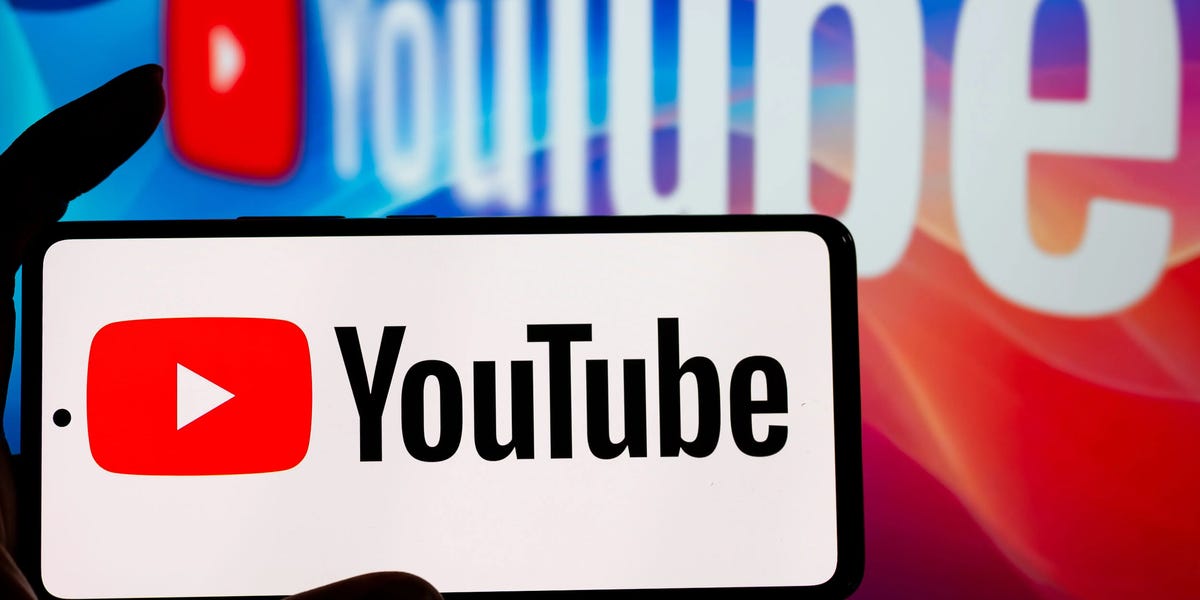Thanks for signing up!
Access your favorite topics in a personalized feed while you’re on the go.
download the app

Halfway to the weekend! For the stargazers, we’ve got a green comet that’s starting to become visible to the naked eye. Here are the details on the best way to see it. (Hint: City dwellers, you’re probably out of luck.)
In today’s big story, we’re looking at a potential exodus of stars from YouTube and what it means for the creator economy.
What’s on deck:
But first, don’t forget to follow my channel.
If this was forwarded to you, sign up here.
The big story
YouTube adieu
Rebecca Zisser/BI
YouTube changed how we watch videos. A departure of creators might lead to its own shift.
It’s been almost 19 years since an innocuous trip to the zoo became the platform’s first video. YouTube has since amassed hundreds of millions of viewers, consuming endless hours of videos.
But some people who helped fuel YouTube’s rise are walking away from the platform that gave them their big break. Creators with large followings and active channels are throwing in the towel, whether due to burnout or frustration over keeping up with the ever-changing platform, Business Insider’s Lindsay Dodgson writes.
Take YouTube megastar MatPat, who built multiple successful channels focused on dissecting theories behind complex storylines. When he announced his retirement earlier this year, he predicted other YouTubers might do the same.
“I think the dam is gonna burst in a lot of ways,” he said.
That doesn’t mean YouTube is necessarily in trouble. The platform is crushing it, with 12 straight months as the top streaming service, according to Nielsen data, and a massive ads business. Gaming, podcast, and commentary channels also continue to thrive, Lindsay writes.
Ultimately, though, YouTube could become dominated by two types of media: High-end videos à la MrBeast, and AI-generated content.
Chart: Andy Kiersz/Business Insider Source: Evercore ISI, SensorTower
Another massively popular video platform is also navigating some turbulence.
TikTok is facing a potential ban in the US if some lawmakers get their way. Critics have raised concerns about the app’s Chinese owners for years, but it’s finally coming to a head in the form of a new bill making its way through Congress.
But it’s not just political issues that TikTok should be worried about. TikTok’s growth rate for its daily average users has collapsed after dominating the social-media landscape for years, writes BI’s Alistair Barr.
(As luck would have it, I recently started posting recaps of the newsletter on the app. Great timing, Dan!)
TikTok’s challenges represent the ongoing uncertainty content creators face trying to make a living in such an unpredictable and shrinking world.
That doesn’t mean the creator economy is doomed. At an estimated size of roughly $250 billion, it’s not going to disappear overnight.
But consolidation could be in order, as creators realize the headaches of running a business that’s ultimately beholden to the whims of the tech platforms they post on.
Partnering up with each other could give them more power to negotiate better terms with advertisers or tech platforms, and potentially avoid the instability that is ultimately driving some of them to quit the business altogether.
3 things in markets
Business Insider
-
Bitcoin and gold are both on fire right now. The volatile digital currency and the steady precious metal both climbed to record highs last week. Spot ETFs and an upcoming “halving” event have powered bitcoin’s latest run, while central bank buying sprees are propping up the price of gold, analysts told BI.
-
Inflation isn’t going away. Consumer price index data for February showed a hotter-than-expected inflation rate of 3.2%, above January’s year-over-year mark (3.1%). Since February 2020, the CPI has increased by around 20%.
-
Jamie Dimon doesn’t think the Fed should rush to cut rates. The JPMorgan CEO said the central bank would be better off waiting until after June to lower interest rates. With their credibility at stake, central bankers would benefit from more data, Dimon added.
3 things in tech
Filistimlyanin/Getty Images, Khosrork/Getty Images, Karim Qubadi/500px/Getty Images, Abanti Chowdhury/BI
-
Startupland is in the midst of a “shroom boom.” Despite still being illegal in much of the United States, some startup founders are experimenting with small doses of psilocybin to improve focus and productivity. Some founders told BI it boosts their creativity and aids their mental health.
-
OpenAI claps back at Elon Musk’s “incoherent” lawsuit. Musk’s suit alleged the company breached its “founding agreement.” In a recent legal filing, OpenAI said that doesn’t exist. The company also said Musk is jealous of the company’s success without him.
-
Christopher Nolan’s 2010 blockbuster is becoming a reality. Researchers from the University of Chicago have found a troubling security flaw in Meta Quest headsets that enables hackers to manipulate users’ VR experiences, steal data, and control interactions without detection. They’re calling the strategy an “inception attack.“
3 things in business
Allevinatis/Getty, stuartbur/Getty, malerapaso/Getty, Tyler Le/BI
-
Real estate has a secret. Some realtors might filter out listings with subpar commissions before passing along options to their clients. Multibillion-dollar lawsuits could put an end to that.
-
Amazon’s growing adtech ambitions are threatening Google and Meta’s revenue. Amazon is working to grow its ad business beyond search placements. Its efforts are starting to gain steam with advertisers, some of whom are doubling their Amazon spend — at the expense of Meta and Google.
-
On a PIP? Someone may want you gone. Companies like putting their employees on performance-improvement plans before termination because of the legal protections they offer. According to a former tech manager, being placed on a PIP is usually a point of no return — and a signal to start job-hunting.
In other news
What’s happening today
The Insider Today team: Dan DeFrancesco, deputy editor and anchor, in New York. Hallam Bullock, editor, in London. Jordan Parker Erb, editor, in New York. George Glover, reporter, in London.


